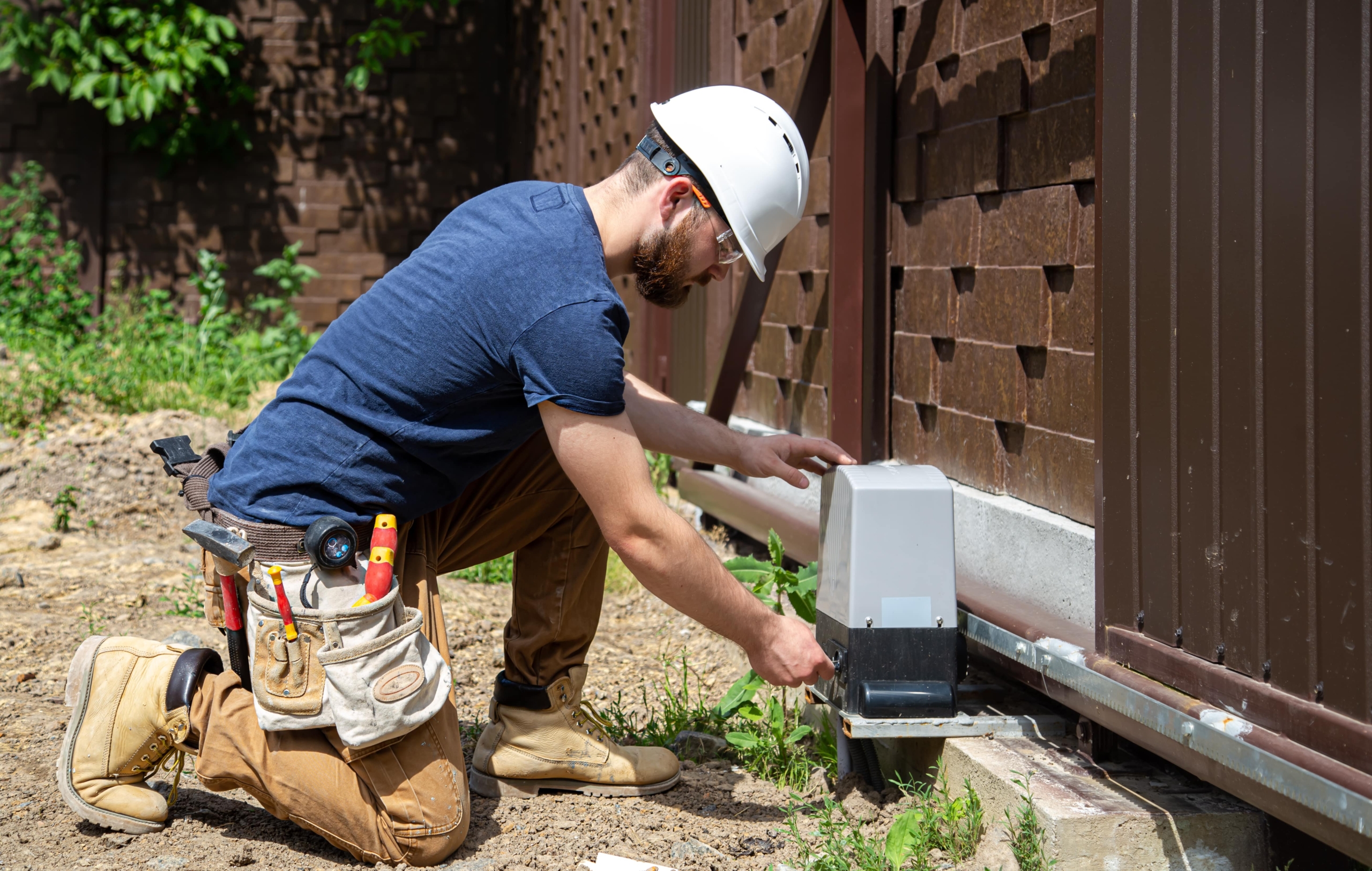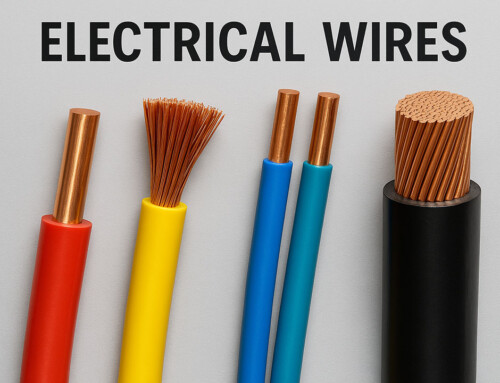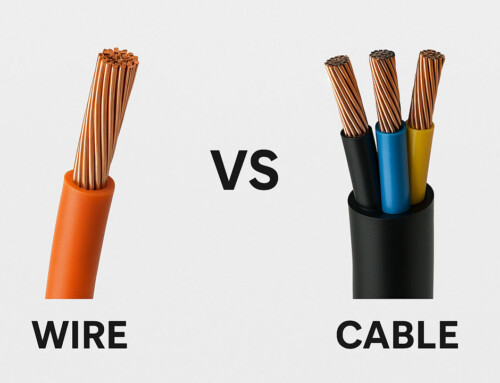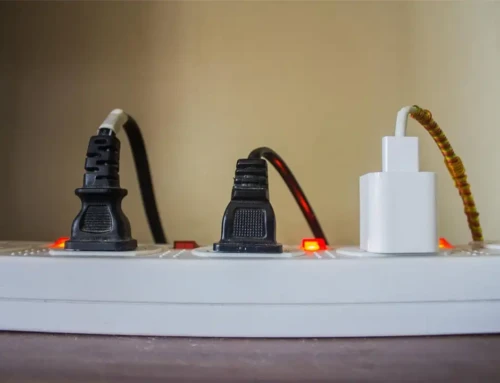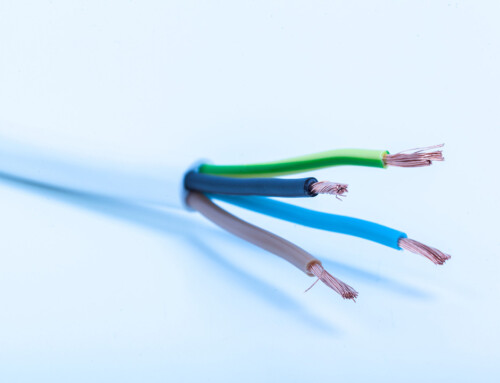Table of Contents
Ever wonder how all the electrical appliances in our homes and workplaces stay safe to use? One important safety feature is electrical grounding. In simple terms, grounding creates a backup path for electricity to flow back to the ground if there’s a problem with the wiring. It basically connects the ground to the electrical equipment in your home.
But why is this ground connection important? Electrical outlets and appliances can be risky if there’s a malfunction. Without proper grounding, a malfunction could send electricity through you, causing harm. This is where electrical grounding comes in. It acts as a safety measure, providing a safe path for any unexpected electrical current to flow away from you and back to the ground.
How Does Electrical Grounding Work?
Grounding is an important part of keeping electrical systems safe. It provides a low-resistance path for any extra current to safely flow back into the earth. This grounding wire acts like a backup route, different from the hot and neutral wires that carry the regular electrical current.
If something goes wrong, like a loose wire or damaged insulation, electricity might leak out of the circuit. This leakage could make the metal parts of appliances live, which means you could get a shock if you touch them. Grounding stops this from happening by giving the current a much easier path to follow – through the grounding wire and all the way down to a metal rod deep in the ground.
The earth acts like a giant electrical drain, safely absorbing the current. The grounding wire, usually made of bare copper for good conduction, connects to the appliance body and runs back to this grounding rod. The neutral wire also connects to the grounding system at the main electrical panel. This connection helps keep the voltage stable within the circuit, which is important for your appliances to work properly.
In short, electrical grounding is essential for preventing electrical shocks and fires. It’s a crucial part of any electrical system.
The 5 Ways Electrical Grounding Protects You and Your Equipment
-
Prevents Damage from Power Surges
Electrical appliances can be vulnerable to power surges, which can happen during storms or other events. Grounding the electrical system provides a safe path for excess electricity to flow into the earth, protecting your appliances from damage.
-
Ensuring Stable Voltage Levels
Grounding an electrical system helps in distributing power evenly throughout. This prevents overloading circuits, which could cause them to trip or malfunction. The earth acts as a common reference point for voltage sources, contributing to stable voltage levels across the entire system.
-
Assures Least Resistance
Earthing electrical appliances is crucial because the earth acts as a natural conductor. It can safely carry excess electricity away with minimal resistance. By grounding your system, you provide a safe path for this excess current to flow, preventing it from traveling through you or your appliances.
-
Reduced Risk of Electrical Fires
Electrical grounding helps minimize the risk of electrical fires. When problems arise within a circuit, such as loose wires or failing components, it can cause leakage current. This current seeks unintended paths, and if it encounters resistance, it can overheat and ignite nearby flammable materials. Grounding provides a safe, low-resistance path for this leakage current to flow. Instead of heating up the appliance or surrounding components, the current is safely diverted back to the earth through the grounding wire, preventing a potential fire source.
-
Protects Appliances and People
Having an ungrounded electrical system puts appliances and even people at greater risk. When high-voltage electricity surges through an appliance, it can cause damage beyond repair. In extreme cases, such surges can also ignite fires, endangering property and lives.
Grounding Components
A lot of different components come together to form a perfectly working grounding system. Let’s take a detailed look at them below.
-
Grounding Electrode
This is a piece of conductive material that makes direct contact with the earth. Examples include metal rods driven into the ground, metal plates buried underground, or even buried metal water pipes (although regulations may limit using water pipes). The grounding electrode’s job is to create a physical connection to the earth, which acts as a baseline for the electrical system and safely absorbs any fault currents.
-
Grounding Electrode Conductor (GEC)
This is simply a wire that connects the grounding electrode to the rest of the grounding system. It’s usually made of copper or aluminum and needs to be thick enough to safely handle any potential fault currents traveling from the electrical system to the grounding electrode.
-
Ground Bus
The ground bus in an electrical panel is a metal bar that connects all the grounding wires. It acts as a central hub for the grounding system and is linked to the grounding electrode conductor. This connection ensures a reliable path for electricity to flow directly to the earth.
-
Bonding Connectors
Bonding connectors are an important part of an electrical grounding system. They’re essentially special clamps or terminals that securely connect various metal parts to the grounding electrode system. This creates a single network where any stray electrical current leakage can easily travel through all connected components and eventually reach the grounding rod for safe dissipation.
By providing a continuous path for current, bonding connectors prevent unexpected voltage buildup on metal enclosures, pipes, or other conductive surfaces. This helps minimize the risk of electrical shock and also protects against potential fires that could occur due to sparking or overheating at connection points.
How to Check for Grounding?
While it’s always recommended to leave electrical work to qualified electricians, here’s a basic way to get an idea of grounding (with the power off, of course!).
We can use a tool called a multimeter to see if there’s a good connection between the grounding hole in an outlet and something solidly connected to the earth. In your home, this could be a metal cold water pipe. Remember, always turn off the power before attempting this.
With the power off, touch one probe of the multimeter to the ground hole in the outlet and the other to the pipe. If the meter shows a low number (ideally close to zero), that generally indicates a good connection. If it shows a high number or nothing at all, there might be a grounding issue. In this case, it’s best to play it safe and call a qualified electrician to investigate further.
Common Tools to Test Outlet Grounding
-
Neon Circuit Testers
A simple and affordable tool for basic electrical checks, neon circuit testers cost just a few dollars. They can help you verify if a two-prong or three-prong outlet is wired correctly. The tester lights up when the probes touch the hot and neutral slots in a properly connected outlet. Additionally, touching the neutral probe to the ground screw (faceplate or third prong) should also light up the tester if the outlet is grounded. If the grounding test doesn’t light up, the outlet might not be grounded properly.
-
Plug-in Circuit Analyzer
Plug-in circuit analyzers are a user-friendly choice for basic electrical outlet testing at home. Affordable and easy to use, these testers simply plug into a three-prong outlet. They use light patterns to indicate common issues, such as proper wiring, reversed polarity, open circuits, or missing grounding.
-
Common Multimeter
Multimeters, commonly used by electricians, can also be helpful for homeowners to check for basic electrical issues like faulty grounding. The process is similar to using a neon circuit tester.
Grounding Safety
While electrical grounding is important for overall home safety, it’s crucial to prioritize your own safety as well. Grounding systems can be complex, and trying to fix them yourself could actually make electrical problems worse or create new dangers. The best approach? Leave grounding work to qualified electricians. They have the knowledge and tools to make sure your system is installed and working properly. Never try to fix grounding wires, outlets, or other components yourself. Doing so could put you at risk of getting shocked or starting a fire.
If you think you might have a grounding issue, there are some warning signs to watch out for. These include feeling a tingling sensation when you touch appliances, hearing buzzing sounds from outlets, or experiencing frequently tripped circuits. If you notice any of these signs, it’s best to play it safe and call a qualified electrician to diagnose and fix the problem. Remember, a properly grounded electrical system is essential for keeping your home safe.
Grounding plays an important role in ensuring the safety of your home and appliances. By creating a safe path for excess current to flow back to the earth, grounding protects you from electrical shocks and minimizes the risk of fires. If you suspect any grounding issues, remember to prioritize safety and call a qualified electrician for inspection and repairs.
Frequently Asked Questions (FAQs)
-
What does “grounded” mean in electricity?
In an electrical system, “grounded” means having a direct connection to the earth. This acts as a safety net for your appliances. Imagine a lightning rod – a grounded outlet provides a safe path for any stray current to flow harmlessly to the ground instead of zapping you or causing a fire.
-
What’s an open-ground electrical outlet?
An “open ground” outlet is essentially a three-prong outlet with a missing safety feature. It has the slots for a grounded plug, but the grounding wire isn’t connected inside the outlet. This can be dangerous because, without that escape route, a stray current could give you a shock or start a fire if a wire leaks electricity. If you suspect an open ground outlet in your home, play it safe and call a qualified electrician to fix it.
-
Can I use electrical tape on a ground wire?
While electrical tape can technically insulate a ground wire in a pinch, it’s not a long-term solution. Electrical tape is weak and can easily loosen and peel over time, exposing the wire again. For electrical safety, it’s crucial to use proper grounding methods like wire nuts or crimp connectors. These create a permanent and secure connection for the ground wire.

